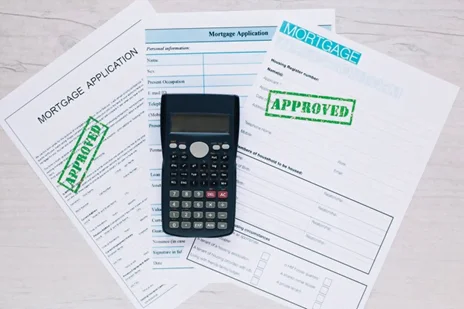
Tax Form 1120
Tax Form 1120 is a form used by corporations in the United States to provide the Internal Revenue Service (IRS) with their annual income, profits, losses, deductions, and credits. This form is one of the most important documents that corporations must file each year under federal tax laws and regulations.
This form is designed to display the full financial and economic activities of corporations throughout the tax year. Also includes data on income, expenses, and other financial transactions that are relevant to the IRS. After the provided information makes it possible to correctly determine the amount for corporation tax. A corporation must pay tax for the corporation to comply with all applicable tax laws and regulations.
To complete Tax Form 1120, corporations must collect a wide range of information about their financial activities, including gross receipts, cost of goods sold, operating expenses, and any other income and expenses associated with their business operations. The form also requires information about any capital gains or losses, depreciation, and other deductions that may affect the corporation’s tax liability.
Once the form is completed, the corporation must submit it to the IRS along with all required supporting documentation and payment of any taxes due. The IRS uses the information on Tax Form 1120 to determine a corporation’s tax liability and to estimate any penalties or interest that may be due if the corporation fails to comply with tax laws and regulations.
One of the main benefits of using Tax Form 1120 is that it provides a clear and complete overview of a corporation’s financial performance for the tax year. This information can be used by the corporation to make informed decisions about its financial transactions and determine any areas in which it can reduce its tax liability.
It is important to note that Tax Form 1120 is used only by corporations and not by other types of business entities such as partnerships, limited liability companies (LLCs), or sole proprietorships. Each type of business entity must file a different tax form depending on its structure and the type of income it generates.
Tax Form 1120 is an important document for corporations in the United States because it provides the IRS with the information necessary to determine a corporation’s tax liability and to ensure that the corporation complies with all applicable tax laws and regulations. By completing and submitting this form each year, corporations can ensure that they meet their obligations under federal tax laws and can make informed decisions about their financial transactions.
Tax Form 1120 Deadline

The deadline for filing a Form 1120, also known as a U.S. corporate income tax return, depends on the type of corporation and the end of its tax year. Generally, corporations must file their tax returns by the 15th day of the third month following the end of the tax year. For most corporations, this means that Form 1120 must be filed by March 15 of each year.
However, if a corporation’s tax year ends on a date other than December 31st, the deadline for filing a tax return may be different. For example, a corporation with a tax year ending on June 30th would have a Form 1120 due on September 15th.
It is important to note that if a corporation fails to file its tax return by the due date, it may be eligible for an automatic 6-month extension of the filing deadline. To request this extension, a corporation must file Form 7004, Application for Automatic Extension of Certain Tax, Information, and Other Tax Returns, before the original filing date of the tax return. The extension allows a corporation to file Form 1120 by September 15 if its tax year ends on December 31, or by the 15th of the 9th month following the end of the tax year if it has a different tax year-end.
In addition, corporations may request an additional extension of the filing deadline if they are unable to complete their tax return by the delayed deadline. To request this additional extension, the corporation must file Form 2688, Application for Additional Extension of U.S. Corporate Income Tax Filing Deadline, by the due date.
It is important to keep in mind that while an extension of the tax filing deadline may be granted, corporations are still responsible for paying any taxes due by the original tax filing date. If a corporation fails to pay its taxes by the due date, it may be subject to penalties and interest on the amount due.
The deadline for filing Form 1120 for corporations depends on the type of corporation and the end of its tax year. Generally, the form must be filed by March 15 of each year or by the 15th of the 3rd month following the end of the tax year. If a corporation is unable to file its tax return by the due date, it may be eligible for an automatic filing deadline extension. However, corporations are still required to pay any taxes due by the original filing date, even if an extension of the filing deadline has been granted.
Tax Form 1120 filing method
Filing a Form 1120, also known as a U.S. corporate income tax return, can be a complex process that requires a thorough understanding of a corporation’s financial activities and applicable tax laws and regulations. However, by following a few simple steps, corporations can complete and file Form 1120 with the Internal Revenue Service (IRS).
Step 1: Gather Information and Documentation
Before filing Form 1120, corporations must collect all necessary information and documentation about their financial activities for the tax year. This may include information about their gross revenue, cost of goods sold, operating expenses, and any other income and expenses associated with their business operations. A corporation may also be required to disclose any capital gains or losses, depreciation, and other deductions that may affect its tax liability.
Step 2: Complete Form 1120
Once the corporation has collected all the necessary information and documentation, it can proceed to complete Form 1120. The form is divided into several sections, each of which requires specific information about the corporation’s financial activities. The form includes sections for reporting corporate income, expenses, profit and loss, deductions, and loans. The corporation must also provide information about its taxable income and taxes due, as well as information about its payments and balance sheet.
Step 3. Calculate taxes due
After completing Form 1120, the corporation must calculate taxes due to the IRS based on the information provided on the form. This calculation can be complex and corporations may need to consult with a tax professional to make sure they calculate their tax liability accurately.
Step 4: Attach supporting documentation
A corporation must attach to its Form 1120 any necessary supporting documentation, such as charts and reports, to provide additional information about its financial performance for the tax year. This documentation may include information about the corporation’s taxable income, expenses, and deductions, as well as any other information required by the IRS.
Step 5: File Form 1120 with the IRS.
After a corporation completes and signs Form 1120, it must file the form with the IRS, along with all required supporting documentation and payment of any taxes due. A corporation may file Form 1120 electronically or by mail, depending on its preference and IRS requirements.
It is important to note that corporations must file a separate Form 1120 for each tax year, even if the corporation has multiple tax years ending in the same calendar year.
In conclusion, filing an 1120 tax form can be a complex process that requires a thorough understanding of a corporation’s financial activities and the applicable tax laws and regulations. However, by following these steps, corporations can complete and file their Form 1120 with the IRS and ensure that they are meeting their obligations under federal tax law.
Read more about What Is Tax Form 1040


